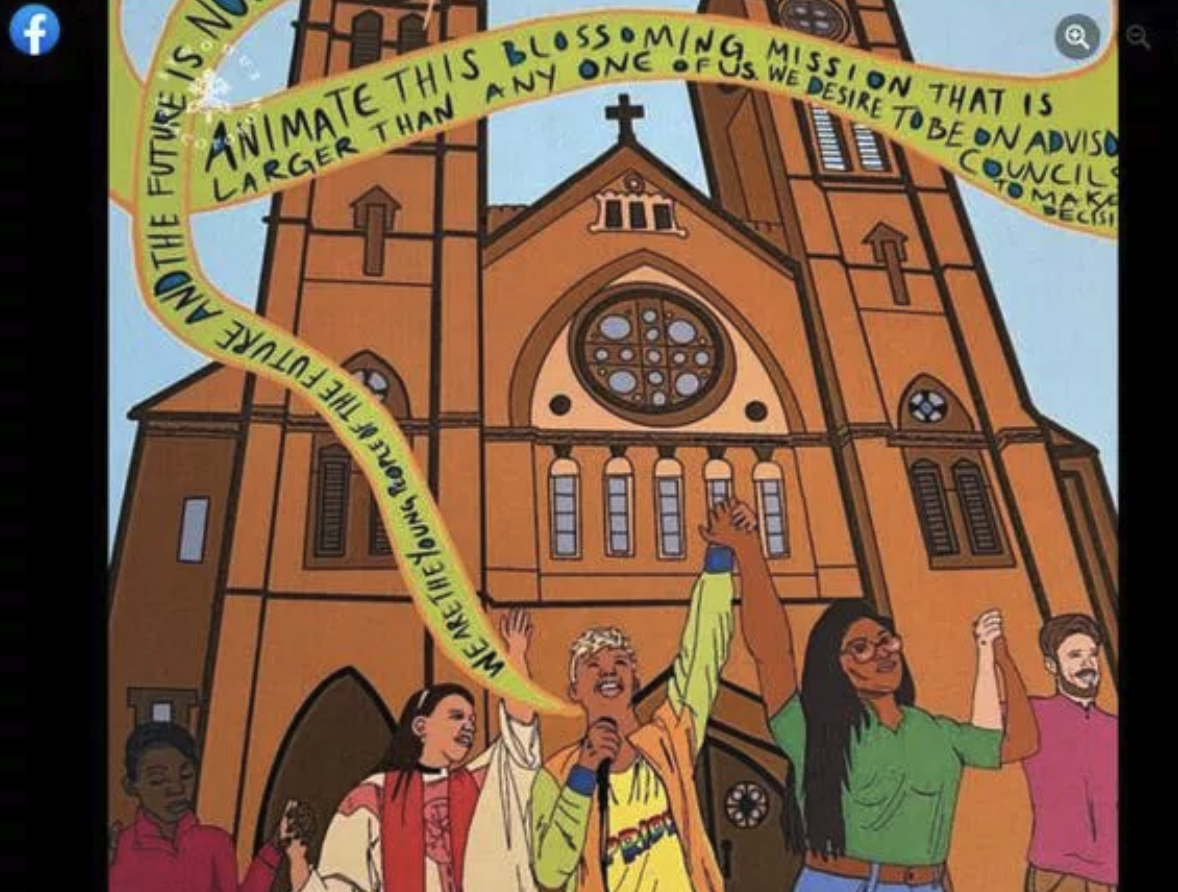There’s no better indicator of how fraught things have become in the upper echelons of the Catholic Church than Pope Francis’s surprising, last-minute decision to clamp strict secrecy upon his all-important Synod of Bishops. This Vatican assembly, very likely the major event of his reign, is running through October 29 with a second, concluding session a year from now.
GetReligion editor Terry “tmatt” Mattingly surveyed the pope’s decision last week, but to repeat the basics: Regulations governing the synod, reinforced in Francis’s opening address, direct participants to reveal absolutely nothing about the discussions, including even what they themselves have to say, not just now but forever after (though the Vatican says violators are not under threat of excommunication).
Paradoxically, Francis’s purpose for this synod was to foster openness, flexibility and “synodality,” a vague buzzword for broader participation of all Catholics in their church’s life and governance! His Kremlin-esque blackout breaks from prior synod policy under five popes — including Francis himself.
We’ll see how things play out, but as of this writing the media have been offered only official briefings that are far more anodyne than usual.
The problem with secrecy rules is that they usually work imperfectly or not at all.
A gag order upon actual participants hands the power of information to outsiders’ interest groups, speculations, suspicions and gossip that inevitably influence news coverage and historical interpretation. For instance, note this paywalled New York Times account — “Vatican Conference Draws All Stripes to Rome, Welcome or Not” — of the “Catholic menagerie" assembled in Rome outside the secret Synod.
Perceptions about the historic and closed-door Second Vatican Council draw from the New Yorker articles and subsequent book by the pseudonymous Rome tipster “Xavier Rynne.” As with Watergate’s “Deep Throat” in 2005, “Rynne” only confirmed his identity in 1998 (see this America article from last June).
Often lids leak anyway. In an amusing synod incident, The Pillar -- founded in 2021 and already an essential online Catholic news source — revealed on Oct. 12 that the confidential daily synod documents were available without password protection to anyone knowing the right Internet address. A secular outlet almost certainly would have exploited the site for unique coverage, but these loyal Catholics withheld scoops gained from the site and instead blew the whistle so access was cut off (click here for more information).
The classic example of forbidden Catholic information is the Conclave where the College of Cardinals elects a new pope. Each cardinal takes a solemn vow to observe “secrecy regarding everything that in any way relates to the election of the Roman Pontiff and regarding what occurs in the place of the election, directly or indirectly related to the results of the voting. We promise and swear not to break this secret in any way, either during or after the election of the new Pontiff. …”
Yet the day after the momentous 1978 election of Poland’s Pope John Paul II, a priest came by Time magazine’s Rome Bureau with what purported to be — and most likely was — the secret vote count for each candidate on three of the four ballots. But negotiations failed and the priest presumably took his numbers to Newsweek et al. (whence Time correspondents obtained the basic scenario from other leakers). The advance leak to Time of the full text of Pope Paul’s 1968 birth control encyclical is another such yarn.
Think of such episodes as backdoor synodality, because open information increases members’ engagement in an organization, not to mention helping donations.
Also this: After 38 years of ceaseless Catholic scandals over sexual predators, The Guy (admittedly a Protestant) believes Francis’s synodality instinct is correct in this way: Across-the-board involvement of moms and dads in the governance of the Holy See and dioceses and parishes would be healthy, as would replacing the hush-hush process for the pope’s appointments of new bishops with open naming of the candidates under consideration.
Historical endnote: We journalists always agitate for open doors, but it’s possible that strict secrecy enabled success for America’s Constitutional Convention, a crucial meeting that preserved a pioneering democracy. Little was known about the debates in 1787 till James Madison’s detailed diary was published after he died in 1836.
Disclosure: The Guy authored “Secrecy in the Church: A Reporter’s Case for the Christian’s Right to Know” (1974), based on an M.A. thesis, and in that era represented the Religion News Association in negotiations when the U.S. Conference of Catholic Bishops agreed to open its meetings to the media (though the hierarchy still handles hot-button topics in executive sessions).

